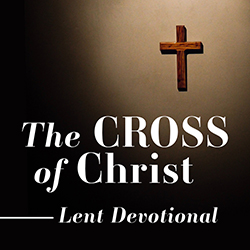Reading: The Cross of Christ, pg. 179-189
But the free gift is not like the trespass. For if many died through one man’s trespass, much more have the grace of God and the free gift by the grace of that one man Jesus Christ abounded for many. And the free gift is not like the result of that one man’s sin. For the judgment following one trespass brought condemnation, but the free gift following many trespasses brought justification. For if, because of one man’s trespass, death reigned through that one man, much more will those who receive the abundance of grace and the free gift of righteousness reign in life through the one man Jesus Christ.
Therefore, as one trespass led to condemnation for all men, so one act of righteousness leads to justification and life for fall men. For as by the one man’s disobedience the many were made sinners, so by the one man’s obedience the many will be made righteous.
Romans 5.15-18
Grace is one thing, however; justice is another. And justification has to do with justice. To say that we are ‘justified by his grace’ tells us the source of our justification but says nothing about a righteous basis of it, without which God would contradict his own justice. So another key expression of Paul’s, which introduces us to the ground of our justification, is justified by his blood (Rom 5.9) Justification is not a synonym for amnesty, which strictly is pardon without principle, a forgiveness that overlooks-even forgets-wrongdoing and declines to bring it to justice. No, justification is an act of justice, of gracious justice. Its synonym is ‘the righteousness of God’, which might for a moment be explained as his ‘righteous way of righteousing the unrighteous.’
Dr. J.I. Packer defines it as ‘God’s gracious work of bestowing upon guilty sinners a justified justification, acquitting them in the court of heaven without prejudice to his justice as their Judge.’ When God justifies sinners, he is not declaring bad people to be good, or saying that they are not sinners after all; he is pronouncing them legally righteous, free from any liability to the broken law, because he himself in his Son has borne the penalty of their law-breaking. That’s why Paul is able to bring together in a single sentence the concepts of justification, redemption and propitiation (Romans 3. 24-25). The reasons why we are ‘justified freely by God’s grace’ are that Christ Jesus paid the ransom price and that God presented him as a propitiatory sacrifice. In other words, we are ‘justified by his blood.’ There could be no justification without atonement. | Stott. Pg. 187
What is the difference between justification and forgiveness?
Lord, thank you that in your infinite justice, you are also merciful. Because of your Son’s sacrifice, we are actually called righteous in your eyes. Let us not lose sight of your goodness to us in Christ. Amen.

